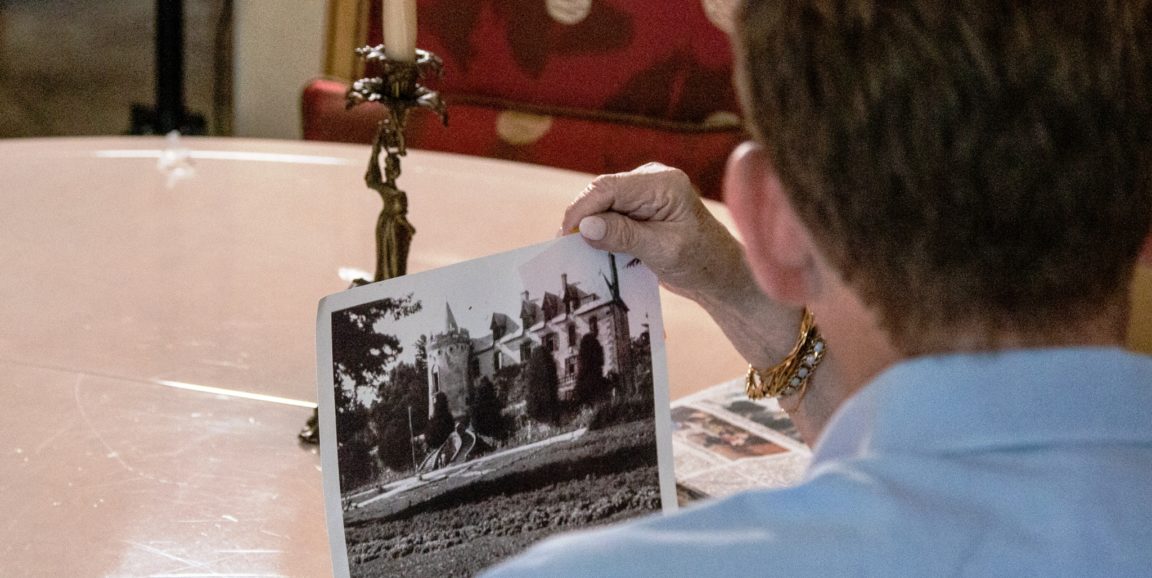After losing his last living grandparent in 2010, wellness speaker/author David Romanelli realized how much he missed connecting with other generations. So he began hosting “Drinks with Your Elders” events, first in Phoenix and then around the country, which brought together the old and young for wine and conversation. These events inspired him to write a book, Life Lessons from the Oldest and Wisest: Inspiration, Wisdom, and Humor for All Generations, for which he interviewed more than 100 people around the country over the age of 80, including a “111-year-old with a great sense of humor.”
I recently spoke with Romanelli, who argues that instead of looking to the latest self-help guru for wisdom, we should turn to the older people in our families and our communities. This portion of our population “is a precious resource of wisdom that’s mostly isolated and ignored,” he told me. “It’s a missing link in our community.”
What struck Romanelli most after conducting his many interviews was the tremendous resilience of older adults and their ability to bounce back from even the toughest of times. “When you talk to older people you realize that they’ve all been through hard times,” he said, and it’s “a great reminder that you’re going to go through dark winters in your own life, too.”
Hearing stories of fighting in World War II or enduring the Great Depression, for example, is a great way to put your own problems in perspective and boost your resilience, a key factor of well-being, Romanelli told me. Rose Lindbergh, 94, one of the Holocaust survivors that he interviewed, lost her entire family at age 14 and witnessed the horrors of Kristallnacht. She offered this hard-earned perspective: “With my own family, I hear them talking that they have issues. I will say ‘You don’t even know what an issue is.'”
Taking the time to sit down with the older members of your family and community can have another added benefit: helping to combat loneliness. Study after study links loneliness with declines in both health and cognitive function for older adults. In fact, a new series of studies calls loneliness a public health crisis of greater proportions than obesity and suggests that “greater social connection is associated with a 50 percent reduced risk of early death.”
Bringing the very old and very young together, Romanelli suggests, may be part of the solution to this loneliness epidemic. In one of the most inspiring chapters, Romanelli describes his experience visiting Andrus on Hudson in New York, a nursing home with a pre-school and elementary school on premise that offers daily intergenerational programs. I spoke with their intergenerational coordinator, Joanne Corrigan, to learn more about the new program. “We bring a lot of smiles into the building. We stir up a lot of memories. We give a lot of hugs. And you can never underestimate the power of touch,” she told me.
Intergenerational programs like these allow older adults to mentor, share stories and teach lessons, which in turn may make them feel useful and valued. “It allows them to have that role again: to be youthful, to teach and to share their wisdom and their knowledge and life experience,” explained Corrigan. In one poignant example, one of the elder residents led a class and taught the kids how to march and salute in honor of Veteran’s Day. The next time the kids passed him in the hall they all saluted. The man was no longer just “old” in the eyes of the students — he was a teacher and a soldier.
And how do the kids benefit from this interaction? “At a very young age they’re learning about aging, about empathy, about manners,” said Corrigan. “We practice looking someone in the eye and asking questions and listening to their answers. Plus, they’ve got a great audience in someone who’s interested in their every move.” According to a report by the Stanford Center for Longevity, the benefits of these connections may help children as much as they help the older adults. They offer children the resources they need to be successful; in this case, adults are passing on the wisdom, skills and emotional intelligence that they’ve acquired over a lifetime.
According to Corrigan, their program is about “co-existence and mutually beneficial outcomes. It’s about raising children to understand what it means to be old and to have patience and empathy and to realize that they too will be old someday.” Saying that “we need to promote positive aging,” Corrigan would like programs like this to be the wave of the future and help foster stronger intergenerational connections.
Romanelli’s hope for his book, meanwhile, is that it encourages all of us to create these connections in our own lives and to take the time to sit down and talk to the older adults around us. “Why do we not mix young and old?” asked Romanelli. “It’s grounding for the young people and rejuvenating for the old people.” And, he added, it’s “powerful medicine” for us all.
Photo by Michael Campion




